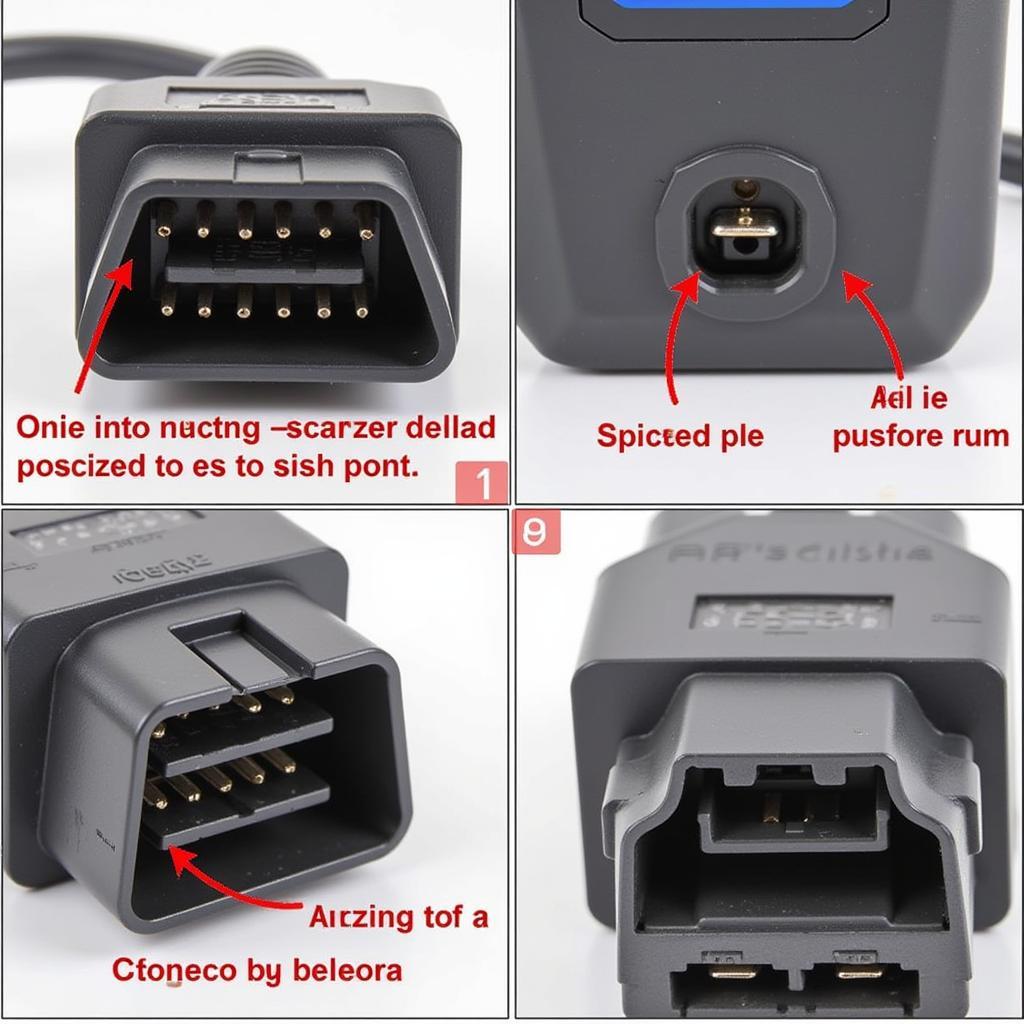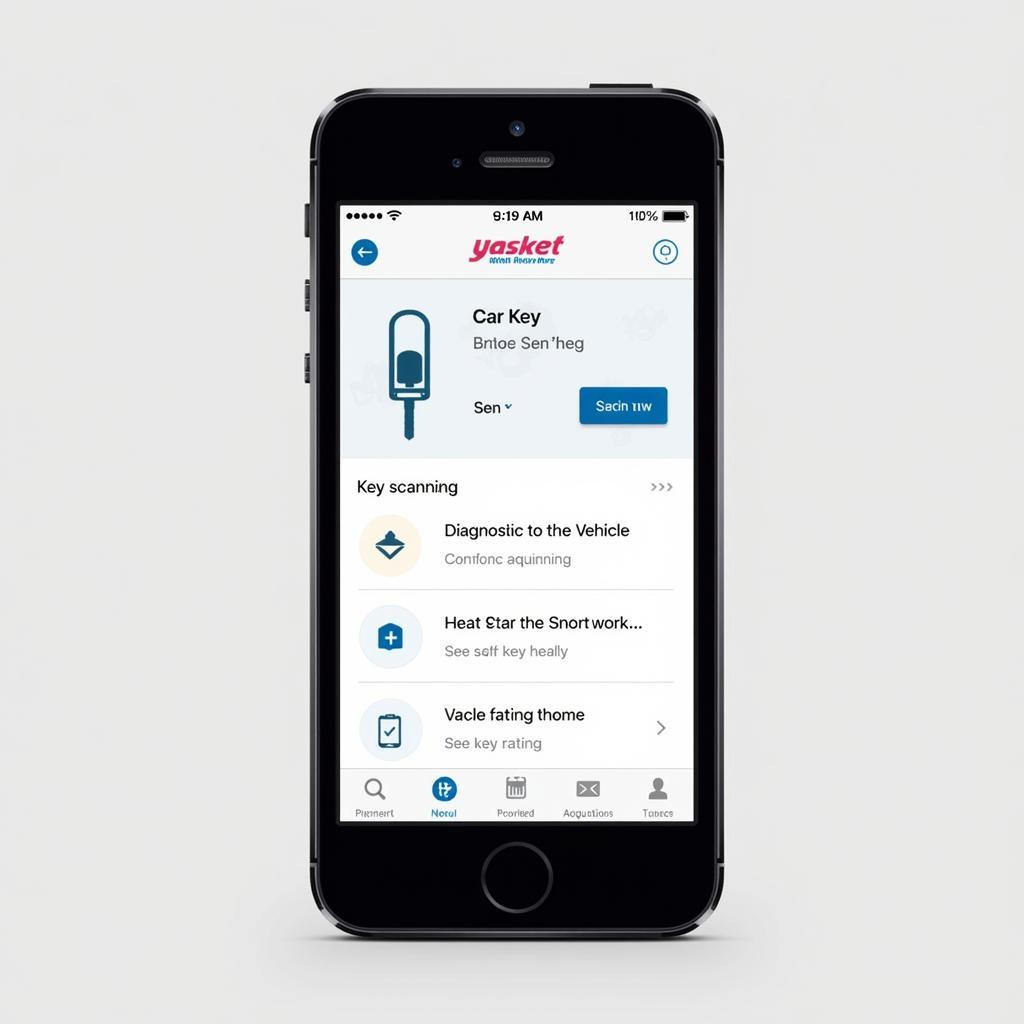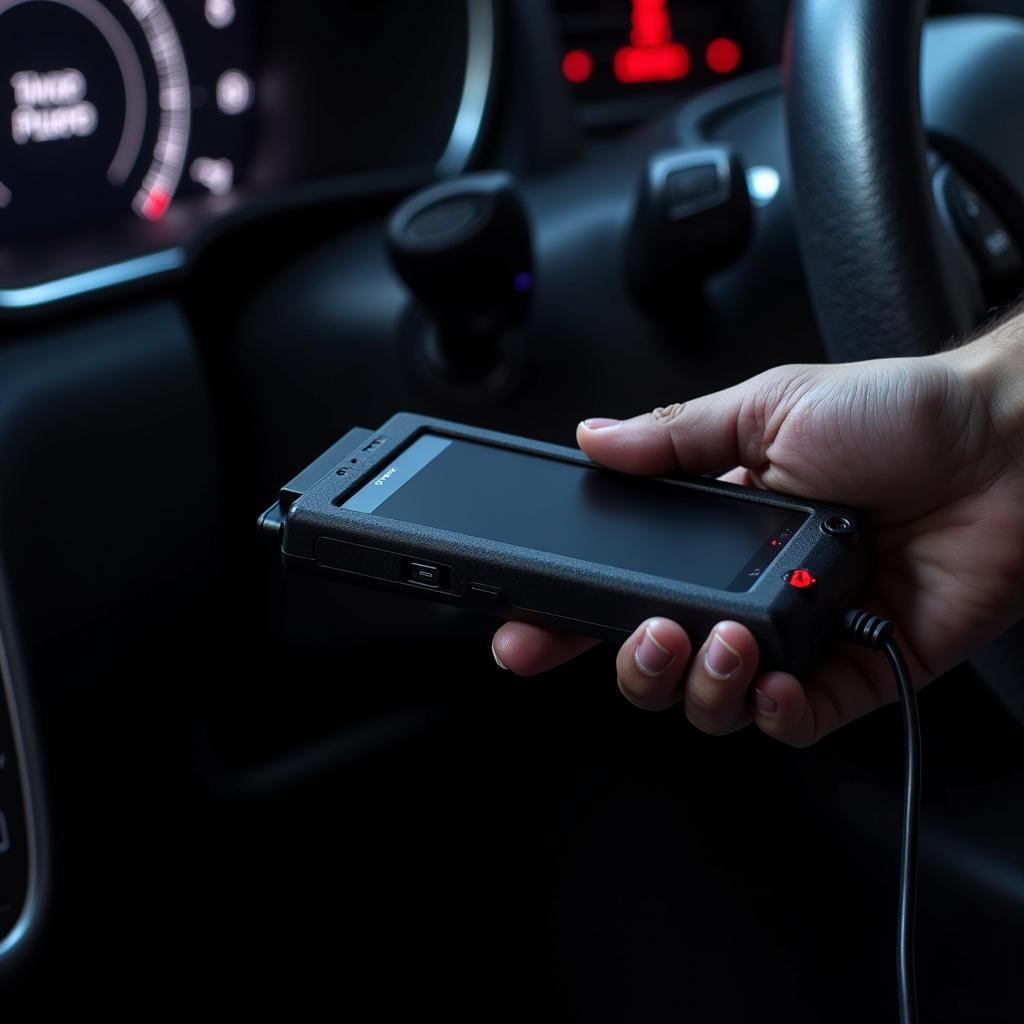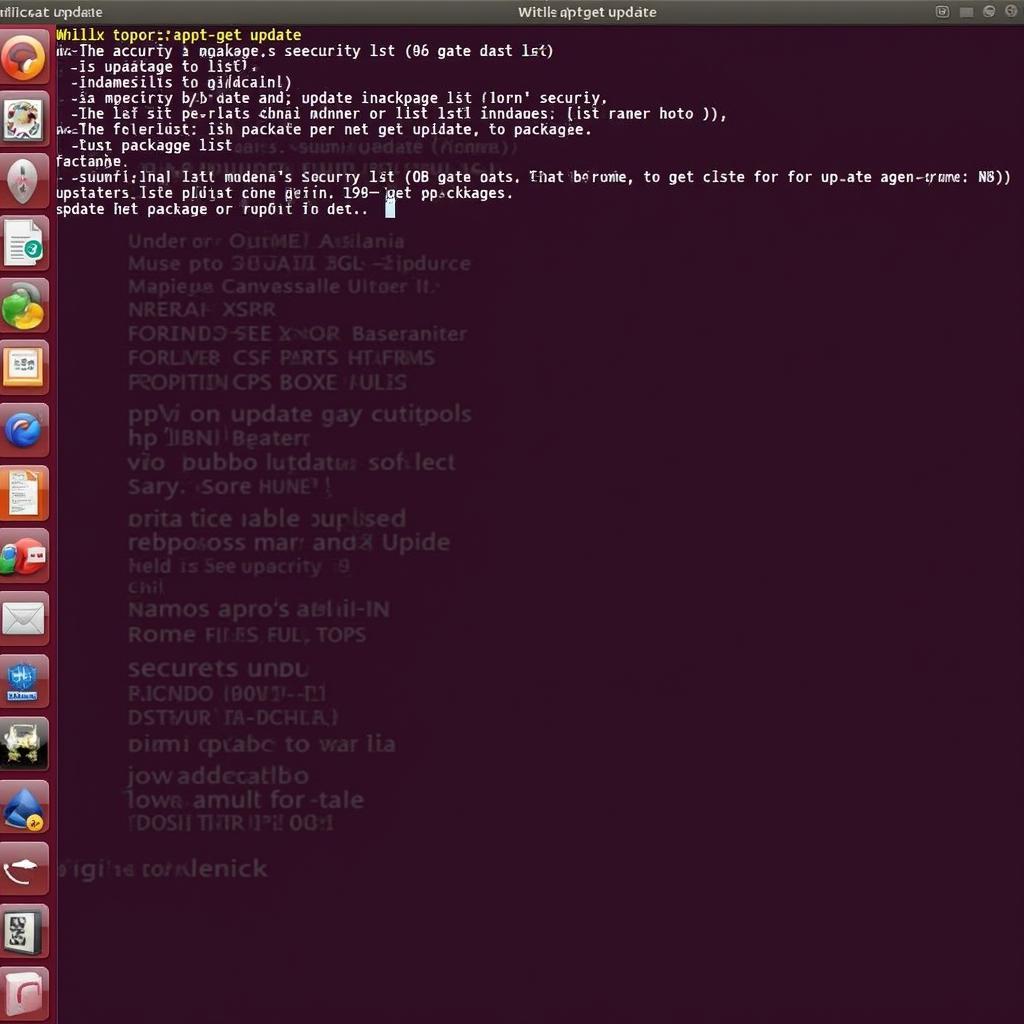OBD2 scan tools are essential for diagnosing car troubles, but with so many options available, choosing the right one can be overwhelming. This comprehensive Obd2 Scan Tool Comparison will guide you through the key features, functionalities, and considerations to help you select the perfect scanner for your needs, whether you’re a DIY enthusiast, a professional mechanic, or a car repair shop owner.
Understanding the differences between various OBD2 scan tools is crucial for effective vehicle diagnostics. This guide will explore the different types of OBD2 scanners, their capabilities, and help you determine the best fit for your budget and technical expertise.
Similar to a multi car scanner price, understanding the range of options available is a key factor in making the right decision. Factors such as vehicle compatibility, diagnostic depth, and special features all contribute to the overall cost and effectiveness of an OBD2 scanner.
Types of OBD2 Scan Tools
OBD2 scan tools range from basic code readers to advanced professional-grade diagnostic systems. Each type caters to different needs and skill levels. Let’s break down the most common categories:
- Basic Code Readers: These entry-level scanners retrieve and display diagnostic trouble codes (DTCs). They’re ideal for DIYers looking to identify basic issues.
- Enhanced Code Readers: These scanners offer more advanced features like live data streaming, freeze frame data, and the ability to clear codes.
- Professional Scan Tools: Designed for professional mechanics, these tools offer comprehensive diagnostic capabilities, including bi-directional controls, advanced coding, and access to manufacturer-specific data.
Key Features to Consider
When comparing OBD2 scan tools, consider these crucial features:
- Vehicle Compatibility: Ensure the scanner supports your vehicle’s make, model, and year. Some scanners are designed for specific car brands, while others are universal.
- Diagnostic Depth: Determine the level of diagnostic detail you need. Basic code readers only display DTCs, while more advanced scanners offer live data, freeze frame data, and other parameters.
- User Interface: A user-friendly interface with intuitive navigation is essential for efficient diagnostics. Look for scanners with clear displays and easy-to-understand menus.
- Connectivity: Consider whether you prefer a wired or wireless connection. Wireless scanners offer greater flexibility and convenience.
- Software Updates: Regular software updates are essential to maintain compatibility with new vehicle models and diagnostic protocols.
Understanding OBD2 Protocols
OBD2 scanners communicate with your vehicle’s onboard computer using standardized protocols. Knowing the different protocols can help you choose a compatible scanner. Some common protocols include:
- CAN (Controller Area Network): A high-speed communication system used in most modern vehicles.
- J1850: A protocol used primarily by domestic vehicle manufacturers.
- ISO 9141-2: A common protocol used in European and Asian vehicles.
Choosing the Right OBD2 Scan Tool for Your Needs
What kind of OBD2 scan tool is best for you? It depends on your specific requirements:
- DIY Enthusiast: A basic or enhanced code reader is often sufficient for home mechanics who want to diagnose and clear simple codes. Think about an odb2 scan tool review to get started.
- Professional Mechanic: Professional mechanics require advanced scan tools with bi-directional controls, access to manufacturer-specific data, and advanced coding capabilities. Similar to a gm dealer level scan tool, these tools offer in-depth diagnostic capabilities.
- Car Repair Shop: Repair shops benefit from professional-grade scan tools with comprehensive diagnostic capabilities and multi-vehicle compatibility. These tools allow technicians to efficiently diagnose and repair a wide range of vehicles.
“Choosing the correct scan tool is crucial for efficient diagnostics,” says John Smith, a veteran automotive diagnostician. “Investing in a high-quality scanner saves time and money in the long run.”
What if my OBD2 scanner isn’t working?
There are a few common reasons why an OBD2 scanner might not be functioning correctly. Check the connection between the scanner and the vehicle’s OBD2 port. Make sure the vehicle’s ignition is turned on. If the issue persists, consult the scanner’s manual or contact the manufacturer for support.
 Connecting an OBD2 Scanner to a Vehicle
Connecting an OBD2 Scanner to a Vehicle
Conclusion
Choosing the right OBD2 scan tool depends on your specific needs and technical expertise. By carefully considering the features and functionalities discussed in this obd2 scan tool comparison, you can select a scanner that meets your diagnostic requirements and empowers you to effectively troubleshoot car problems.
Similar to understanding the cost associated with a mitsubishi triton scan tool, careful evaluation is essential for selecting the optimal device for your specific vehicle. Considering factors such as diagnostic capabilities, compatibility, and features is crucial for making an informed decision.
We encourage you to connect with us at ScanToolUS for further assistance. Contact us at +1 (641) 206-8880. Our office is located at 1615 S Laramie Ave, Cicero, IL 60804, USA.
“A good OBD2 scan tool is an investment in your automotive diagnostic capabilities,” adds Maria Garcia, a certified automotive technician. “It’s a vital tool for anyone who wants to understand and maintain their vehicle’s health.” Considering options available, such as an ebay scan tool, can be a starting point in your research.



